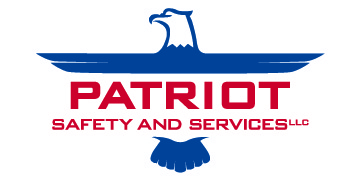Setting the Standard with Verified Information
In today’s hiring landscape, trust must be earned—not assumed. Whether an employer is staffing a transportation fleet, a healthcare team, a logistics crew, or a financial services office, the people brought into an organization carry both opportunity and risk. Background checks services are the first tool employers use to reduce that risk, verify qualifications, and ensure that every candidate aligns with the safety, legal, and performance standards required for the role.
Background checks are more than a routine step in onboarding—they are a compliance safeguard, a security measure, and a way to protect a company’s workforce, reputation, and bottom line. Done correctly, they provide employers with a complete picture of a candidate’s past, help enforce hiring consistency, and prevent avoidable incidents that can result from unverified claims or missed red flags.
Why Background Checks Are Essential for Employers
Employers in both regulated and non-regulated industries rely on background checks to confirm that candidates are who they say they are—and to assess whether any aspect of their history could present a risk in the workplace. In industries with public-facing roles, safety-sensitive duties, or financial responsibilities, this due diligence isn’t just best practice—it’s often mandatory.
A complete background check typically includes verification of identity, criminal history, employment and education history, and in some cases, driving records or professional licenses. The goal isn’t to eliminate candidates unfairly—it’s to ensure that hiring decisions are based on accurate, relevant, and timely information.
An unverified hire who later proves to be unqualified, dishonest, or risky can cause significant financial loss, harm employee morale, and potentially lead to legal claims. By conducting thorough background checks at the beginning of the employment process, companies dramatically reduce the chance of hiring mistakes that could impact the long-term success of their business.
Legal Considerations and Compliance Obligations
Conducting background checks must always be done in accordance with federal and state laws. The Fair Credit Reporting Act (FCRA) outlines the requirements employers must follow when screening candidates. These include obtaining written consent, providing clear disclosure forms, and offering a pre-adverse action process if a hiring decision is influenced by the findings in a background report.
In addition to the FCRA, Equal Employment Opportunity Commission (EEOC) guidelines recommend that employers consider the nature of any criminal record, its relevance to the job, and how much time has passed since the offense. Blanket exclusions based on arrest or conviction records can lead to claims of discrimination or bias if not handled correctly.
To stay compliant, employers must apply their background checks uniformly and base decisions on job relevance rather than assumptions. Partnering with a knowledgeable provider helps ensure that every check is conducted lawfully, ethically, and consistently across roles and hiring locations.
The Business Impact of Thorough Screening
When employers conduct accurate, timely background checks, they create a hiring environment rooted in fairness, transparency, and diligence. Candidates are evaluated on facts, not guesswork, and businesses gain confidence in the integrity of their workforce.
Well-documented background checks also protect employers in the event of a legal challenge. If a workplace incident occurs and it becomes clear that the employer failed to screen appropriately—or overlooked relevant convictions—negligent hiring claims may follow. These claims can carry significant legal and financial consequences, especially if harm was done to another employee or a member of the public.
By building a structured screening program with standardized policies and documentation, employers reinforce their risk management efforts and demonstrate accountability. Background checks also reduce turnover by helping match the right candidate to the right job, improving performance and long-term retention.
Industries Where Background Checks Are Critical
While every employer benefits from knowing who they’re hiring, some industries face especially high stakes when it comes to candidate screening. In transportation and logistics, for example, employees often operate expensive equipment, drive commercial vehicles, or handle hazardous materials. In these cases, background checks often include a Motor Vehicle Record (MVR) review and may need to comply with DOT regulations.
In healthcare, access to vulnerable populations and sensitive data requires careful scrutiny of criminal history, abuse registries, and professional license verification. In financial services, verifying education and ensuring no history of fraud is essential to protect both the employer and its clients.
Even in office-based or administrative roles, background checks support better hiring decisions. Falsified credentials, unexplained gaps in employment, or omitted convictions can all lead to trust issues and workplace disruption if not addressed early.
Key Components of a Comprehensive Background Check Services
A reliable background checks services should be tailored to the role and conducted using verified sources. At a minimum, employers should expect the following:
- Identity verification and Social Security trace
- County, state, and federal criminal record searches
- Employment and education history verification
- Motor Vehicle Records (MVR), if driving is part of the job
- Professional license verification, where applicable
- Optional checks for sex offender registries, global watchlists, and civil litigation history
The more complete the check, the better equipped employers are to make informed decisions. However, even a basic criminal search, if accurate and timely, can prevent serious hiring errors and create a much-needed layer of protection.
The Role of Patriot Safety and Services
At Patriot Safety and Services, we provide employers with professional, compliant background checks services that support informed, confident hiring decisions. Our team works with clients in DOT-regulated and non-regulated industries to design screening programs that meet both legal obligations and internal risk standards.
We offer customizable background checks that include multistate criminal record searches, Social Security verification, MVR reviews, and education or employment verifications. Our systems are designed for speed and accuracy, so employers can move forward quickly without sacrificing compliance.
Our process integrates seamlessly with pre-employment drug testing, DOT physicals, and TPA program management—giving employers a one-stop solution for hiring compliance. We also help businesses maintain consistent documentation, respond to audit requests, and manage adverse action procedures.
Whether you’re hiring a single safety-sensitive employee or building an entire department, Patriot Safety and Services provides the tools, guidance, and reliability you need to run your program with confidence.
Building a Safer, More Transparent Hiring Process
A strong hiring process begins with trust—and background checks services are the foundation of that trust. By verifying information early and thoroughly, employers create a work environment where performance expectations are clear, policies are upheld, and safety is taken seriously.
Candidates respect companies that take hiring seriously. Clients and customers trust businesses that vet their teams carefully. And internal teams operate more effectively when every member is held to the same high standards.
In an increasingly complex regulatory environment, employers can’t afford to skip this step. With the right tools and the right partner, background checks become an asset—not a burden. They empower your organization to grow safely, protect your reputation, and deliver on the promises you make to your clients, your team, and the public.


